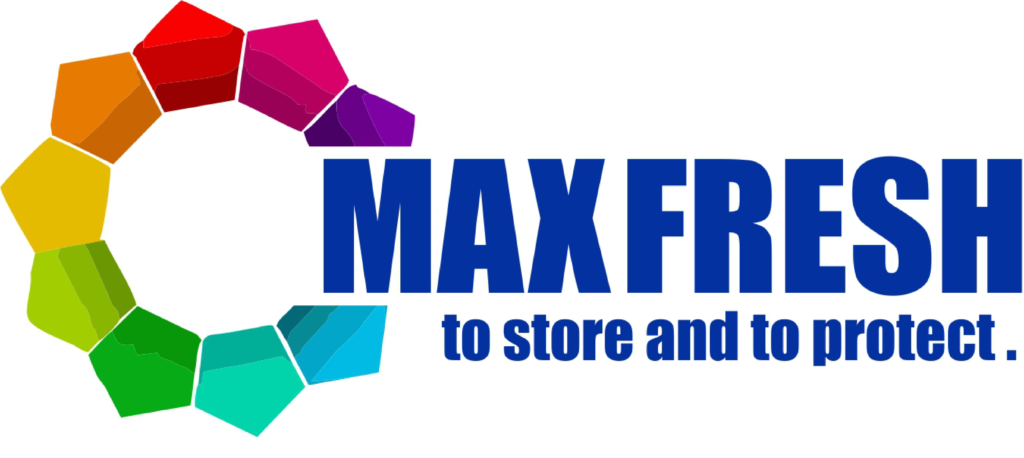MAX-FRESH

MAX-FRESH
01/10/2020- 31/03/2024
Grant agreement ID: 958840
Eugene Rokx
Coordinator, STOREX
Storex Belgian BVBA (STOREX), Begium
Radboud University, Faculty of Science (RU), The Netherlands
NKT PHOTONICS A/S, Denmark
SENSEAIR AB, Sweden
DOI: Jahromi K. E., Edinger P., Nematollahi M., Krebbers R., Khodabakhsh A., Harren F.J.M. (2021), Fourier transform and grating-based spectroscopy with a mid-infrared supercontinuum source for trace gas detection in fruit quality monitoring. Optics Express Vol. 29, Issue 8, pp. 12381-12397
Maximizing freshness and minimizing losses of agriculture products through automated atmosphere management in storage facilities
Today, the fresh produce supply chain is highly unsustainable: 33% of the produced fruit and vegetables is either lost or wasted, of which 10% occurs during long-term storage. This loss also has a major financial impact on the food industry.
The MAX-FRESH aims to tackle that challenge and develop the innovative ISS-Monitor: the world’s first automated multi-species trace gas sensor that can simultaneously and in real-time detect low levels of 7 volatile gases that indicate ripening, fermentation, damage or rotting of stored fruit.
The project will be performed by a complementary consortium of 3 market-leading industrial partners and 1 academic partner, combining cutting-edge technologies with unique expertise. The MAX FRESH consortium builds a functional prototype of the ISS-Monitor and plans to bring it on the market after the succesful competion of the project in 2023.
By doing so, the ISS-Monitor will make an impact on the global food production system by contributing to sustainable food production for the ever-growing world population.
Today, the fresh produce supply chain is highly unsustainable: 33% of the produced fruit and vegetables is either lost or wasted, of which 10% occurs during long-term storage. This loss also has a major financial impact on the food industry. For stored apples, pears and blueberries alone, the global economic loss equals €6.1 billion per year. However, a significant part of current storage losses could be prevented if only continuous monitoring of stored products as possible so that appropriate measures can be taken.
In the MAX-FRESH project, we will develop the innovative ISS-Monitor: the world’s first automated multi-species trace gas sensor that can simultaneously and in real-time detect low levels of 7 volatile gases that indicate ripening, fermentation, damage or rotting of stored fruit. Once unfavourable conditions are detected, the ISS-Monitor will provide automated alerts to enable timely and effective interventions by its customers. The ISS-Monitor has the potential to reduce losses of stored fresh food by 50%, extend storage life by 20%, and reduce post-harvest chemical treatments by 50%.
The MAX-FRESH project builds on a functional prototype of the ISS-Monitor which demonstrated proof of performance in a relevant environment. During the MAX-FRESH project, we will take the final steps required to launch the ISS-Monitor on the market. To do so, we apply for €2.2 million (77%) from the EC. The MAX-FRESH project will be performed by a complementary consortium of 3 market-leading industrial partners and 1 academic partner, combining cutting-edge technologies with unique expertise.
After completing the MAX-FRESH project in 2023, the ISS-Monitor will be ready for market launch. By doing so, the ISS-Monitor will make an impact on the global food production system by contributing to sustainable food production for the ever-growing world population. Sales of the ISS-Monitor will generate cumulative revenues of €110 million for the MAX-FRESH consortium.
